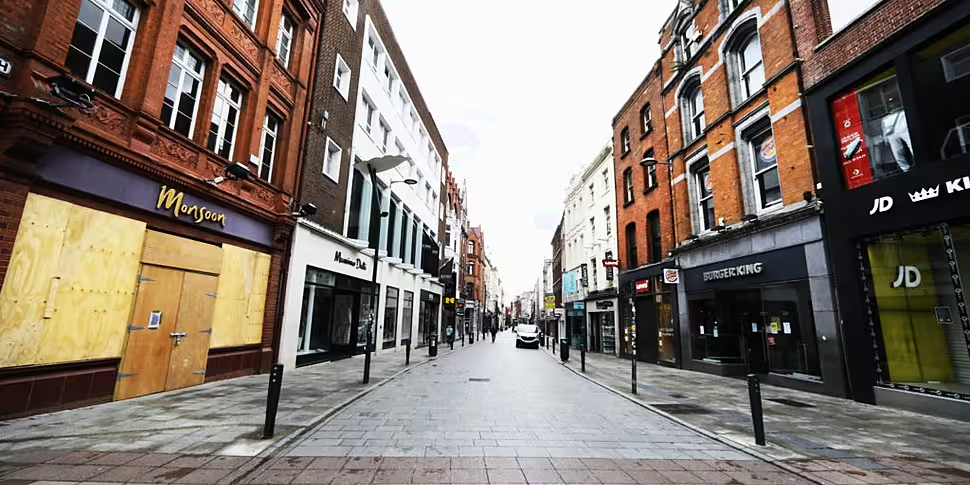A new report from the Economic and Social Research Institute (ESRI) says the Irish economy is facing its largest recession in history, as COVID-19 lockdown takes its toll.
Its summer quarterly economic commentary examines three potential scenarios: baseline, severe and benign.
The baseline scenario is considered the most likely, and follows the Government roadmap for re-opening through to August.
After this, it says the economy begins to recover but operates below its ‘pre-pandemic’ level due to ongoing measures such as physical distancing.
Dr Conor O'Toole, a senior research officer at the ESRI, told Newstalk Breakfast that there is no modern equivalent to this.
"The weather might be good outside, but the economic outlook has serious dark clouds, that's for sure".
"Given [that] the current economic shock is really without precedent or without modern equivalent, we've tried to capture some of the uncertainty by giving different scenarios for what might happen through to the end of the year.
"We've allowed the Government roadmap to play out between now and August - and then we varied what may happen between quarter three and the end of the year".
"For the year as a whole in the best case, the economy will contract by over 9%.
"In the worst case, the impact could be nearly double that: it could be nearly down by over 17% - and they're very, very stark declines in economic activity".
"There was no years that came anywhere close to that in the financial crisis - this is a shock without precedent in the speed and the scale of what has happened in such a short period of time".
"What we would hope is that... if for example the economy is allowed to re-open and the epidemiology of the virus suppresses to the extent that we can go back to business - either with some physical distancing or back to a more normalised situation - that you could have a much sharper recovery this time round.
"The dynamics of this crisis are very different to what happened during the financial crisis".
"This is a shock that's come out of left field, in a sense, and really has just taken a major chunk of economic activity".
"However if it is possible to unwind those, we should be able to get back to a station where there's a much more rapid rebound in growth".
"I think a very fine balance will have to be struck here - I think certainly in the short-run, it's absolutely clear the Government needs to step in... to really underpin economic activity while the pandemic is currently working its way through the country.
"In terms of what happens after that, when we do go back to work and the economy begins to recover, there will still be the requirement for a stimulus.
"And what we're saying is that that might give you good opportunity to try and address some of the deficiencies - for example, in terms of household and social housing or in healthcare - that you wanted to make expenditure on".
Baseline vs Severe
In the severe scenario, a second wave of the COVID-19 outbreak hits with strict lockdown assumed later this year.
While the benign scenario assumes successful suppression of the disease , and sees a return to economic normality in the fourth quarter of the year.
In the baseline scenario GDP declines by 12.4% this year - as against a drop of 17.1% in the severe scenario and an 8.6% in the benign outlook.
But the ESRI says: "Regardless of the scenario, the Irish economy is set to experience the largest annual decline in its history."
It adds that all aspects of the economy will be 'considerably affected', with significant declines in consumption, investment and exports of goods and services.
Consumer spending is also set to fall sharply by 13% and investment by nearly one-third in the baseline scenario.
It says that the economic impact of COVID-19 has been 'clearly visible' in the labour market and public finances.
But while unemployment is expected to decline as the economy re-opens, the baseline scenario still has unemployment above 17 % for the year as a whole.
The unemployment rate reached a record high of over 28% in April, with commentary suggesting that young workers and those living outside of Dublin have been most heavily impacted.
And the increase in public expenditure to combat the virus will see a significant government deficit in 2020, it says.
In the baseline scenario, this deficit is expected to be over €27bn or 9% of GDP.
"The financing of such large deficits will come into sharp focus in the months ahead and hard choices will have to be made", it says.
It adds that ongoing, coordinated action by EU policymakers will be needed.









